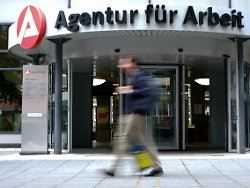The federal government wants to help companies through the corona-related downturn and save jobs, which is why the short-time allowance is being extended. There is applause from business associations, but also headwinds from within our own ranks. A CDU politician railed particularly violently against the decision.
Business associations praise the extension of short-time work benefits as an important signal in the crisis. But the federal government must also defend the decision against criticism. It is not about continuing short-time work forever, said Labor Minister Hubertus Heil on Deutschlandfunk. "We are dealing with the deepest economic crisis of our generation, and it will not be over by January 1st," said the SPD politician. Despite the economic recovery forecast for the coming year, this "stable bridge" is needed to secure jobs.
Federal Minister of Economics Peter Altmaier described the resolutions of the coalition leaders as an important signal for companies and employees. "With the extension of the short-time work allowance and the extension of the bridging allowance, we are helping workers and medium-sized businesses to survive this serious crisis and to preserve jobs," said the CDU politician. State aid for small and medium-sized enterprises should also run longer than previously planned.
According to the plans of the government coalition, the simplified short-time allowance is to be extended from the regular 12 to up to 24 months. The extended period is to apply to companies that have introduced short-time work by December 31, 2020. The short-time allowance should be extended until December 31, 2021 at the longest. It is further increased to 70 and 77 percent from the fourth month and to 80 and 87 percent from the seventh month. These rules are to be extended to December 31, 2021 for everyone who is entitled to short-time allowance by March 31, 2021. The regular short-time allowance amounts to 60 percent of the lost net wage, for working people with children 67 percent. So that the Federal Employment Agency (BA) can shoulder the billions in costs for short-time work, the coalition wants to loosen up tax money – as a grant and not as a loan.
Finance billions of dollars from tax money
Heil expects a need for federal subsidies from tax revenues to the federal agency in the amount of around ten billion euros. This should keep the BA able to act and prevent increases in contribution rates for employees and workers, said Heil. The BA reserves of once 26 billion euros have not yet been used up, but are decreasing in view of the size of the crisis. Federal Finance Minister Olaf Scholz also assumes that an additional 10 billion euros will have to be spent on the extended short-time allowance. "The fact that Germany got back on its feet the fastest in the world during the last economic crisis has a lot to do with short-time work," said the SPD politician in the ZDF "Morgenmagazin".
The CDU chairwoman Annegret Kramp-Karrenbauer emphasized that the additional expenses that the BA has because of the short-time work allowance should also be covered from the federal budget so that the increasing contributions do not burden employees and employers. It is the declared goal of the CDU to keep social security contributions below 40 percent. Praise for the agreement came from the Federation of German Industries (BDI). The grand coalition has proven that it has recognized the seriousness of the situation, said BDI Managing Director Joachim Lang. "The GroKo's acute crisis management is not enough, however. A future fund and the IV Bureaucracy Relief Act have been announced, and the announcements must now be quickly followed by action."
Marcel Fratzscher, President of the German Institute for Economic Research, also praised the extension of the short-time work allowance and the help given to companies. The economist emphasized that he still expects about two to three more years before the economy gets going again. In the current crisis it is important to stabilize employment.
The CDU economic wing criticized the agreement, however, sharply. The chairman of the middle class parliamentary group of the Union parliamentary group, Christian von Stetten, called the decisions on short-time allowance unrealistic. "It would have been completely sufficient to additionally protect those industries that are particularly affected by the state restrictions until the end of 2021." The coalition tries to secure full employment through planned economy measures at the expense of the next generation. The fact that the short-time working companies do not have to contribute to the financing of short-time working leads to abuse.
. (tagsToTranslate) Economy (t) Short-time work (t) Corona crisis (t) Peter Altmaier (t) Federal Employment Agency (t) Economic activity (t) Economic stimulus programs
